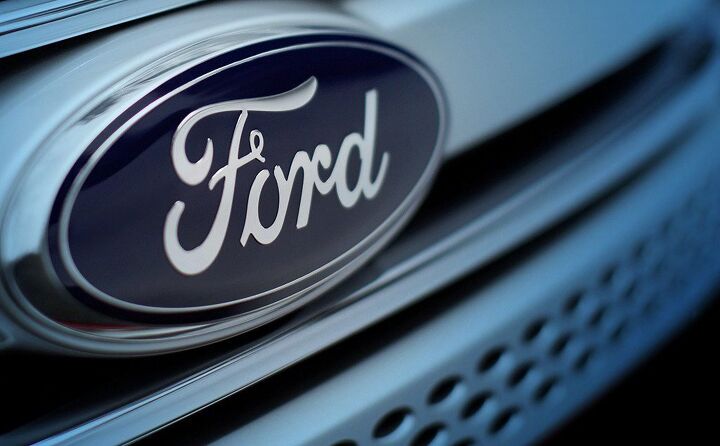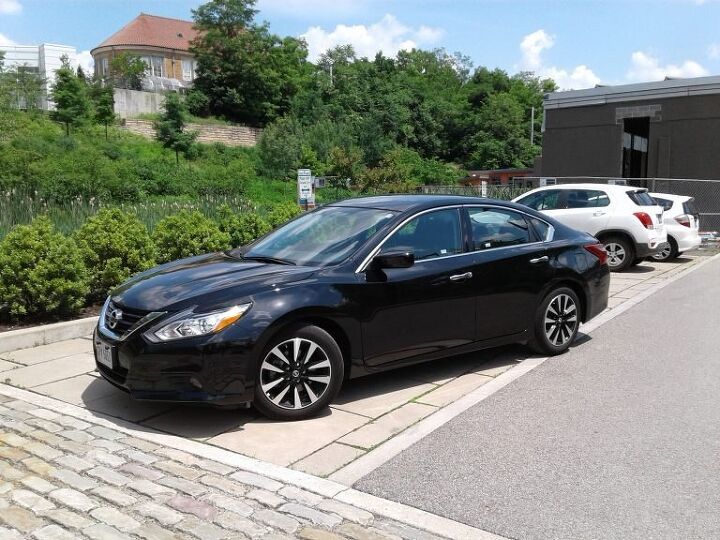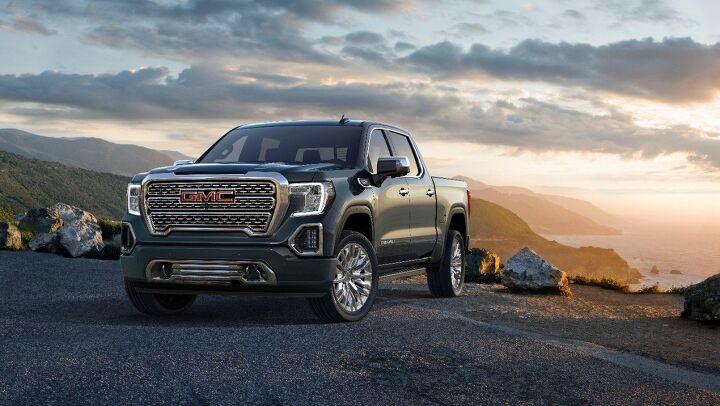#nhtsa
Tesla Investigated Over Touchscreen Failure Complaints
The National Highway Traffic Safety Administration (NHTSA) said Tuesday it has launched an investigation into Tesla’s Model S. Frequent complaints have arisen of the vehicle’s media control unit going on the fritz and knocking out the vehicle’s touchscreen.
We’ve seen several outlets minimize the issue by suggesting gaps in Tesla’s Autopilot should be seen as more pressing. Apparently, many see potentially faulty touchscreens as small potatoes. But we can’t agree; not when they happen to operate the brunt of the car’s auxiliary functions, and we’ve heard reports of this very problem for years. If you need a refresher course, we covered the matter extensively in the fall of 2019. The gist is that the embedded Multi-Media Controller (eMMC) on MCUv1 units seem to be overworked. Constantly logging data is tough on the system, and this setup didn’t appear to be capable of handling the high load, resulting in flash-memory wear.
Silver and Gold: Nevada Joins California in the Gas War
On Monday, Nevada Governor Steve Sisolak announced that his state will embrace California-crafted emissions rules that are at odds with the national rollback finalized by the Trump administration in March.
Officially, Sisolak said the rules would not require residents to abandon their current ride “or choose one that does not work for their lifestyle or business needs.” Nevada has, however, decided to adopt higher mpg standards, as well as the Golden State’s zero-emission vehicle (ZEV) rules that require manufacturers to sell a certain number of electric or plug-in hybrid models each year based on the total number of vehicles sold within the state.
Companies in compliance accrue ZEV credits, which can then be traded or sold to other manufacturers for money. As with the Corporate Average Fuel Economy (CAFE) system, those that cannot hit their targets (or afford to buy up credits) will be fined. Tesla actually used such arrangements to make $594 million off its rivals in 2019, with the prospect of things only getting more lucrative for the all-electric brand.
NHTSA Readies New Voluntary Autonomous Driving Database
The National Highway Traffic Safety Administration (NHTSA) plans to release new guidance for automakers to make autonomous testing data available to the public. As you are no doubt aware, the concept of self-driving cars is losing steam. The industry finds itself confronting hurdles it never could have anticipated, slowing progress, while high-profile mishaps have shaken the public’s faith.
While polling has hardly been consistent (and often conducted by actors who frame the questions to get a desired answer), reputable outlets have shown us that public acceptance of self-driving cars declined over the past few years. The NHTSA would like to offset this by allowing regular folks to more easily track the industry’s progress, while encouraging a bit of competition among companies as they compare themselves to each other in a new database.
Ford Recalls 2 Million Vehicles Over Bum Door Latches
On Wednesday, Ford Motor Co. announced two safety recalls. One is a brake line issue involving 343,900 F-150 pickups equipped with the 3.5-liter EcoBoost V6. The other relates to door latches — an obnoxiously familiar headache for the company — and encompasses a whopping 2.15 million vehicles from the 2011-15 model years.
Ford says the affected vehicles may not have had all door latches correctly replaced or replaced at all when repaired by dealerships under safety recalls 15S16 or 16S30 — both of which were done fix faulty equipment that was susceptible to failure in direct sunlight.
Apparently, the thermal threshold of the parts wasn’t all that impressive,and a few doors popped open while vehicles were in motion. While the manufacturer said it was unaware of any injuries related to the incidents, having a door randomly pop open on the motorway is universally undesirable.
Ford is going to take another whack at it.
IIHS Denounces Concept of Total Safety From Autonomous Cars
When the United States began passing legislation allowing automakers to begin testing self-driving vehicles on public roads, it was framed almost entirely as a safety issue. Proponents claimed that the only way to eliminate roadway fatalities was to take the human brain out of the equation and let cars drive themselves. Having enacted a similar no-thinking policy themselves, legislators agreed — pleased to have ensured a death-free future on little more than empty corporate promises.
At the time, we were still complaining about the unreliable nature of advanced driving aids, and how such systems seem custom-made to dull your reflexes behind the wheel. There was a sense that, if everything went perfectly, maybe autonomous vehicles (AVs) could reduce accidents by previously unheard of levels. That feeling didn’t last particularly long here at TTAC and, by 2018, we started noticing we weren’t alone.
The Insurance Institute for Highway Safety (IIHS) grew increasingly critical of AVs starting a couple of years ago. On Thursday, it released a report claiming the idea of a no-crash future spurred by automation is a fantasy. Instead, the IIHS says cutting-edge technology will likely struggle to stop just a third of all accidents.
Speaking of Fleet Sales… There's Another Nissan Altima Hood Recall
The previous-generation Nissan Altima gained an unfavorable reputation as a rental lot darling (ask Corey about his Midwest comfort cruise), but another issue plagued the model: Hoods not staying shut when they’re supposed to.
Nissan issued recalls in 2014, 2015, and 2016 in an attempt to remedy a hood latch corrosion issue that caused some hoods to fly open unexpectedly while underway. Now, the automaker has decided to expand that recall to the entire generation, calling back 1.8 million vehicles for a fix it hasn’t yet devised.
Gas War: States Sue Trump Administration Over Fuel Rollback
Following America’s fueling feud has shown your author that it’s less about finding a reasonable compromise that works for consumers, the automotive industry, and environmental activists, and more about perpetuating ideological wars that now seem to surround every topic filtered through the news media.
Encouraged by industry leaders just days after taking office, President Donald Trump made the fuel economy rollback one of his first initiatives. It wasn’t until March that the softened final draft emerged, however, and it won’t be enough to conclude the almost four-year battle. A collection of 23 states filed suit against the Trump administration’s easing of emissions standards on Wednesday. They argue that the rollback is illegal and based on bunk information.
While we’ve also been suspect of some of the metrics used to make the rollback look more desirable, fueling standards haven’t adhered to reality in some time. The Obama-era standards that would have seen Corporate Average Fuel Economy (CAFE) rise to 54 mpg by 2025 were deemed unsustainable by that administration’s Environmental Protection Agency (EPA) and the National Highway Traffic Safety Administration (NHTSA), but were put into play anyway.
Gas War: Senator Asks EPA Watchdog to Investigate New Fuel Efficiency Rules
Every time we think the United States’ fueling fracas had concluded, something new emerges to remind us that we’re utter morons. Despite the Trump administration finally wrapping up the fuel rollback of Obama-era emission standards on March 31st, Senator Tom Carper (D-DE) has sent another letter asking Environmental Protection Agency Inspector General Sean O’Donnell to look into the new rules.
Carper asked the inspector general last February to conduct an investigation into “potentially unlawful efforts and procedural problems” stemming from their implementation. His assertion is that the EPA was circumventing various procedural requirements and attempted to hide data that would have conflicted with some of the rollback’s claimed benefits.
Did it?
Three Makes a Trend: Traffic Deaths Down Again
What this spring needed was more talk of sudden death. So here you go.
According to preliminary estimates released by the National Highway Traffic Safety Administration, fewer people died in highway crashes in 2019 — pushing the nation’s death rate down even further from a modern-era high point reached in 2016.
While data from the Fatality Analysis Reporting System (FARS) does seem to indicate a third straight year of decline, we’re still a ways off from numbers reached just a handful of years ago.
Gas War: EPA and DOT Release Final Draft of Fuel Rollback
The U.S. Department of Transportation’s National Highway Traffic Safety Administration (NHTSA) and the Environmental Protection Agency (EPA) released their final version of the Safer Affordable Fuel-Efficient (SAFE) Vehicles Rules on Tuesday. This will establish new targets for corporate average fuel economy (CAFE) and emissions standards for passenger vehicles from the 2021-2026 model years and just in the nick of time. The document had to be completed by April 1st, in order to leave sufficient time for the coming model year.
If you’ve been following the long and arduous process that brought us here, you’ll notice the document has changed slightly from previous drafts. The rollback still enacts the straightening of emission regulations but reels them back from the lofty goals set by the Obama administration. Annual increases in fuel efficiency standards will be set at 1.5 percent through 2026. Previous drafts had the Trump administration freezing efficiency requirements at 2020 levels.
Open and Shut: NHTSA Issues Hood Recall for New Silverado, Sierra HD
General Motors’ revamped 2020 Chevrolet Silverado and GMC Sierra HD pickups are striking in appearance, but some buyers might be more enamored with the new 6.6-liter gas V8 under the hood. It’s a selling point, but it’s not something you want the truck showing off an inopportune times.
Like, say, when driving down the highway.
The possibility of unexpected underhood peep shows for the occupants of passing school buses are what prompted the National Highway Traffic Safety Administration to issue a recall.
Jeep Wrangler and Gladiator Recalled Over Toasted Clutch
Jeep is recalling 33,237 Wranglers and Gladiators equipped with manual transmissions because the clutch plate can overheat and fracture. According to the National Highway Traffic Safety Administration’s (NHTSA) recall report, the callback encompasses all Wranglers sold with a third pedal from the 2018-2020 model year, with the same being true for the 2020MY Gladiator.
U.S. Pedestrian Deaths Reach Highest Level in Decades
While the preliminary data from the National Safety Council shows 2019 being a safer year for cars operating in America, its report noted continued concerns regarding pedestrian safety. Additional data gleaned from the Governors Highway Safety Association’s (GHSA) assessment of pedestrian deaths by state shows that those traveling outside of cars aren’t enjoying the same safety enhancements as those sitting comfortably inside the cabin.
Its report estimates that 6,590 pedestrians were killed in 2019. The figure represents a 5-percent increase from 2018 and is the largest number of deaths the United States has seen since 1988. The situation, however, isn’t as simple as the big numbers suggest. Despite pedestrian fatalities gradually creeping up since 2009, only 30 states actually saw an increase in their total number of deaths last year. The GHSA now projects a pedestrian fatality rate of 2.0 per 100,000 people. While that’s also the highest rate the country has seen in years, it’s actually far lower than automobile fatalities — which currently averages around 11.0 per a population of 100,000.
GM's Software Recall Just Causing More Brake Problems
General Motors is recalling around 128,500 vehicles in the United States over a previous fix that didn’t work as intended. The cars stem from a larger December callback that aimed, via a software flash, to mitigate braking problems on about 550,000 Chevrolet Silverado 1500, Cadillac CT6, and GMC Sierra 1500 models from 2019. GM says the solution created issues on about a third of them.
The problems are much the same as before. Affected vehicles may have serious braking issues and have their anti-lock braking system (ABS) and electronic stability control (ESC) fail. At least this time the computer will know enough to indicate a problem via the vehicle’s warning lights. In the previous recall, GM said the vehicles’ diagnostic system would not illuminate the instrument cluster to hint that something was amiss.
Ahead to the Past: DeLorean Production Could Start Next Year
DeLorean’s plan to produce updated versions of its only model has been delayed due to the National Highway Traffic Safety Administration (NHTSA) dragging its feet on the Low Volume Motor Vehicle Manufacturers Act. The car was supposed to be here as a turnkey classic years ago, but the regulator failed to act after the 2016 election. The NHTSA doesn’t currently have an administrator, and the acting administrator would not sign off on the regulations. Vintage automobiles probably aren’t very important to an agency that’s also trying to manage autonomous and electric vehicles.
However, the Low Volume Motor Vehicle Manufacturers Act was supposed to be the keystone in allowing DeLorean and the like to assemble new cars. Noticing three years had passed with no progress, the Specialty Equipment Market Association (SEMA) decided to sue the NHTSA last fall. James Espey, vice president of DeLorean Motor Company, has taken this as a good sign — and he believes the company could start production in 2021.





























Recent Comments